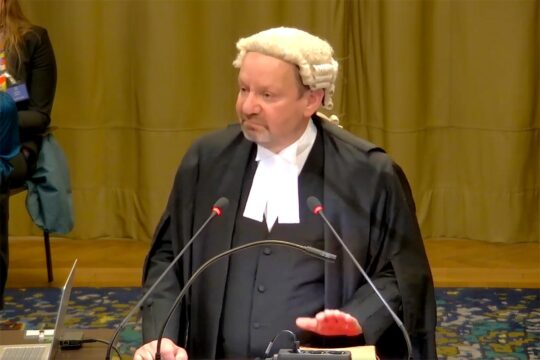Reporters Without Borders (RSF) has called for the release of four Eritrean journalists, imprisoned for 24 years without trial, urging the international community to act to end "this serious violation of their rights".
The Horn of Africa country has been ruled with an iron fist since its independence in 1993 by 79-year-old Isaias Afwerki and remains among the most closed-off in the world.
Eritrea has not held elections in over 30 years and ranks last out of 180 countries in RSF's Press Freedom Index.
In a crackdown in 2001, authorities shut down independent media outlets and detained reporters, including Temesgen Ghebreyesus, Seyoum Tsehaye, Amanuel Asrat and Dawit Isaak, who "are now the longest-serving journalists in the world imprisoned without trial," RSF said late Tuesday.
The 24 years they have spent detained amounts to "moral and psychological torture perpetuated by the Eritrean authorities", said Sadibou Marong, head of RSF's Sub-Saharan Africa desk.
In 2005, Dawit, who also has Swedish citizenship, was released for two days before being re-arrested.
"Since then, there has been no sign of life," RSF said.
Eritrean Information Minister Yemane Ghebremeskel did not respond to a request for comment from AFP.
RSF called on "Sweden and the international community to do everything possible to put an end to this serious violation of the rights of these journalists".
The watchdog has filed several complaints with the Swedish prosecutor's office, accusing the Eritrean president of crimes against humanity, but no investigation has been opened.
It accused Swedish authorities of "turning a deaf ear" to the case.
The Swedish prosecutor's office told AFP that it would "make no comment" on RSF's criticisms but said complaints were not pursued due to a lack of cooperation from Eritrea.
In June, the United Nations Special Rapporteur on human rights in Eritrea, Mohamed Abdelsalam Babiker, described "systematic" violations.
Dissenting voices in the country, home to roughly 3.5 million, disappear into prison camps, and civilians face military conscription or forced labour, which the United Nations says amounts to slavery.


